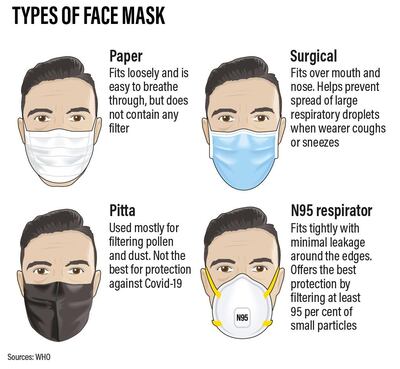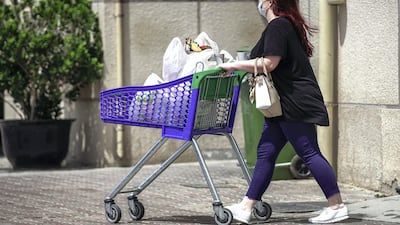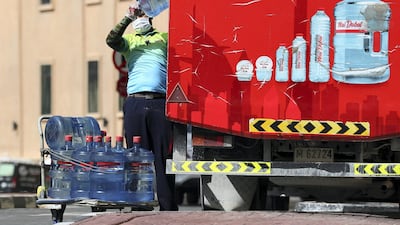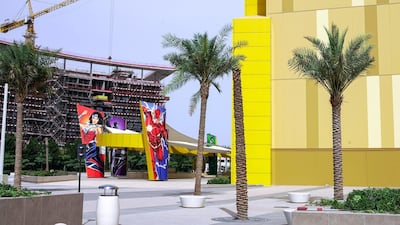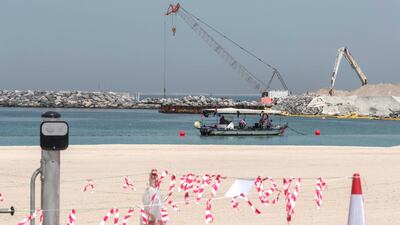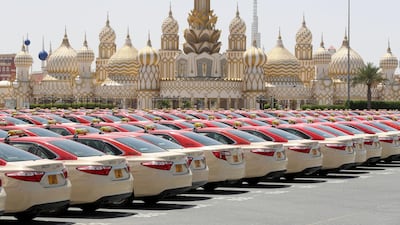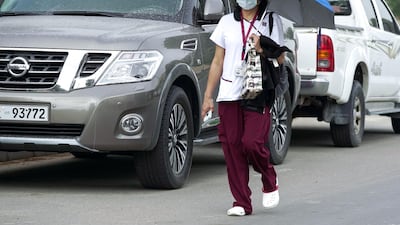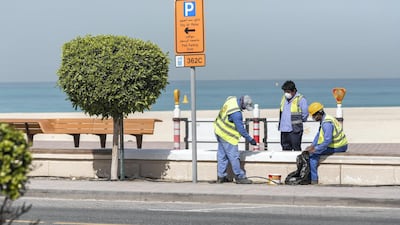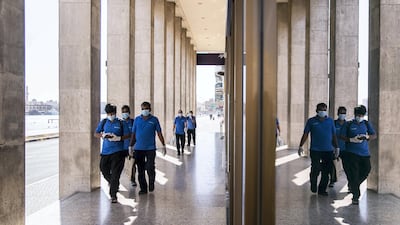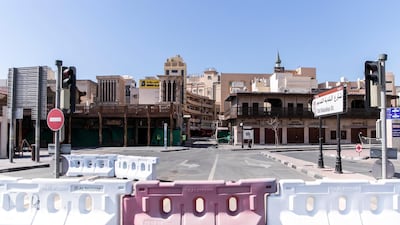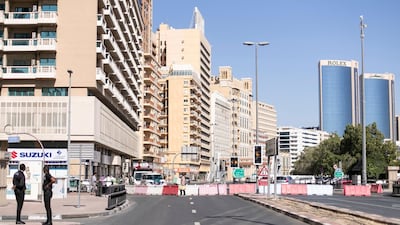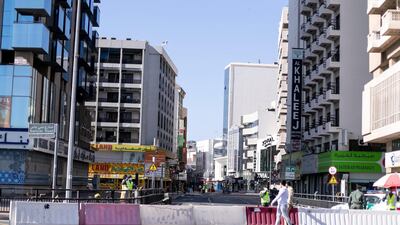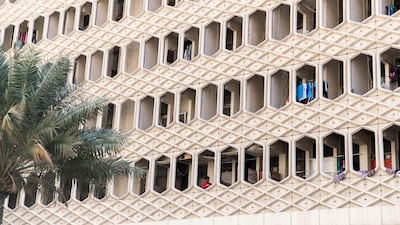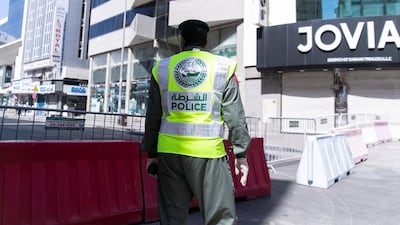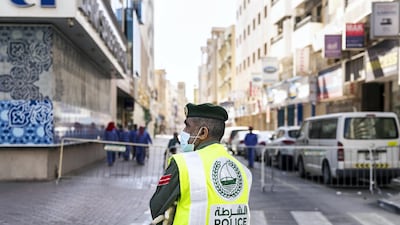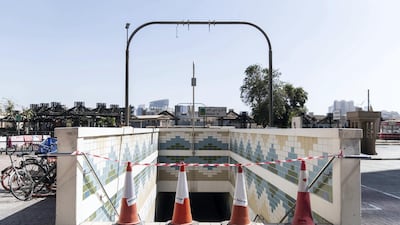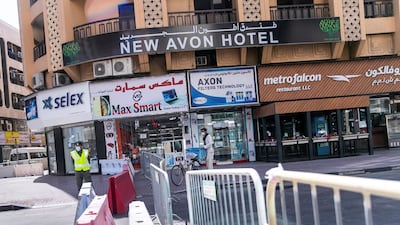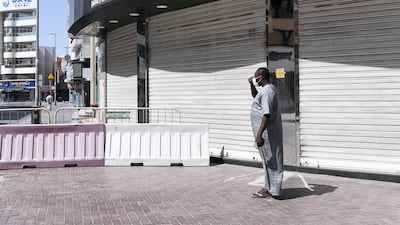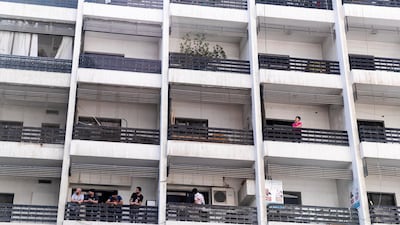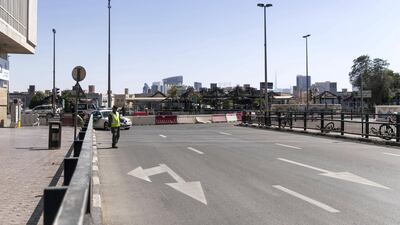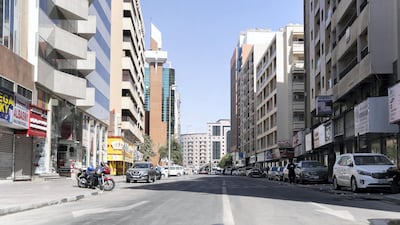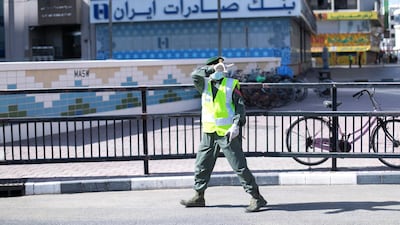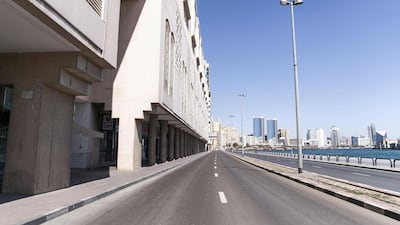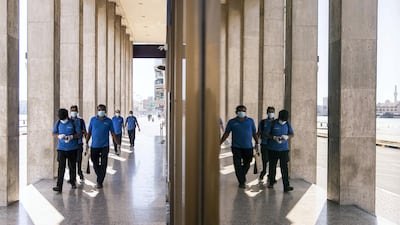New travel restrictions were imposed in Dubai this week as the country works to tackle a rising number of coronavirus cases.
They will significantly reduce the number of people leaving home at any one time.
Any Dubai resident leaving their home for any reason would first need a permit from Dubai Police. This includes for essential shopping in a supermarket or pharmacy.
Permits must be obtained whether shoppers are pedestrians, drivers or taking a taxi. The application can be made here.
“Extensive testing” of densely populated communities will also begin soon, the Supreme Committee of Crisis and Disaster Management said.
As of Monday, there were 2,076 confirmed cases in UAE, almost four times the figure it was seven days ago.
Here’s what we know so far:
What has changed?
Only one member of a household can now leave home for essential shopping in supermarkets and pharmacies.
The only other journeys that are allowed are to hospital or a doctor’s appointment.
You must wear a mask and gloves at all times once outside, not only when you arrive at the shop.
That person must apply for a permit before leaving the home. Police will send a one-time-use text message with which you can log in.
You must fill out a form on the Dubai Police website stating where you are going, at what time and when you will return home.
If you are stopped by a police officer, they can check your journey was permitted.
Officials gave the sternest warning yet that anyone found outside without good reason would be fined or even prosecuted in court.
“Extensive testing” will be rolled out in densely populated areas to identify cases of Covid-19.
Can I walk or jog outside?
No, and nothing has changed in this regard. If you left the house in the past two weeks, it should have been for essential shopping at a supermarket, pharmacy or for a medical appointment.
But the authorities have clearly given residents leeway until now, given the number of joggers and walkers on the streets.
That seems likely to change.
Police also told local media they will use street security cameras to check on people who are out of their homes for no reason.
Can I still go shopping?
Yes, but only one member of your household can go, and with the permit.
That would mean children should not be taken to the supermarket and anyone in a group should expect to be stopped and penalised.
There should only be one person in each vehicle.
“These measures have been put in place to ensure people undertake trips outside the home in a planned and organised way,” Dubai Media Office said on Saturday.
Do I need a permit to leave the house?
Yes. Permits were originally in place for people who had to leave during the original 8pm-6am travel ban, during which streets and public places were cleaned.
That system was suspended last week but reintroduced on Sunday.
Cars used at night were flashed by speed cameras if on the roads after 8pm and that appears likely to continue.
The permit is for pedestrians, cyclists, people taking a taxi or those driving their own car.
How can I get around Dubai?
Private vehicles can be used for essential journeys but only one person should be in the car.
Dubai shut both Metro lines on Saturday along with the tram line in the Marina.
But public buses continue to run and are free, and the publicly owned taxi fleet cut fares by 50 per cent.
If you work in an essential industry – there is a list here – you can use the options above to get to work.
Many hospitals and supermarkets are already taking their own staff to and from work each day.
Where can I find a mask and gloves?
Some pharmacies and supermarkets still have supplies of masks, mostly thin surgical ones that are made to be used once.
A box of 50 masks is usually about Dh100 and a packet of gloves about Dh45.
Masks that block tiny particles and germs – such as N95 and the FFP2 “duckbill” – are more difficult to find locally and in many countries.
Masks are still available online but delivery times vary considerably. Here is a round-up of what we could find from local online retailers.
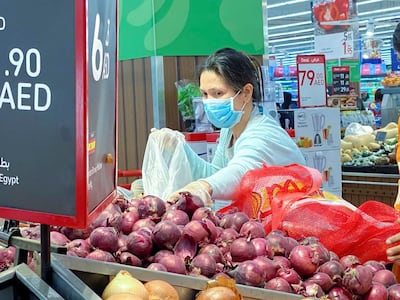
Officials said they were aware of shortages and urged residents to make homemade cotton masks if necessary.
Basic Japanese-style “pitta” dust masks and so-called fashion masks offer extremely limited protection, but could at least limit the distance of a sneeze.
Dr Farida Al Hosani, the government’s health spokeswoman, said something was better than nothing.
“Use home-made masks made of cotton or mixed cotton, making sure to rewash them,” Dr Al Hosani said.
“When I wear a mask I’m protecting you and when you wear it, you’re protecting me.”
Can I still order food online?
Yes. Food outlets and restaurants can still prepare food for home deliveries round the clock. Delivery drivers are on the list of essential workers who can move around the city.
Drivers for apps such as Careem and Deliveroo can leave food outside a customer’s door to minimise contact between the two.
Read our interview with delivery drivers, who have continued to work diligently throughout the crisis.
What happens next?
For most of the population work will continue from home where possible and schools will press ahead with e-learning.
For pupils leaving school this year, coursework is now more crucial given that it may be judged in university applications in place of cancelled exams.
Last week, Abu Dhabi began using drive-through labs to test people and this will be extended across the country.
Initially this was for elderly residents and people who were unwell but had not been tested.
Officials fully expect case numbers to rise before a decline, Dr Al Hosani said, as a result of “early, intensive tests on a big scale to identify cases and who they were in contact with”.
There has been no suggestion that isolation such as that in Al Ras in Deira, one of the most densely populated areas, would be introduced more widely.
What is the situation in Abu Dhabi?
Much the same. Residents should only leave home for essential shopping and you should be ready to be stopped and asked where you are going.
Police have patrolled the streets in recent weeks and will order anyone who is not travelling to or from a supermarket to return home immediately.
What is the situation in the Northern Emirates?
Residents cannot leave their homes from 8pm to 6am as street cleaning continues, but that could change at any time.
Federal authorities have already told residents they should leave home only for essentials.
Private hospital groups were brought in to test about 200,000 labourers last week.
Key ports remain open and crucial industries such as fishing continue operate to bring fresh food into local markets.

